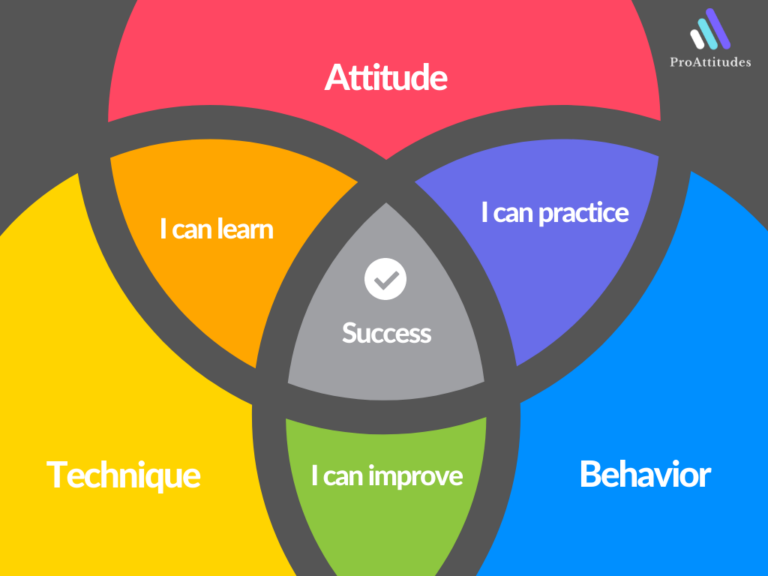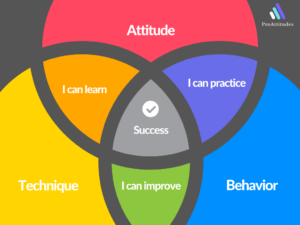If you really want to do it, losing weight is easy. It starts with the internal voice that you listen to. No, not your inner critic’s voice. It should sound like a combination of a personal coach and a trusted friend—your inner coach.

Your inner dialogue doesn’t define you.
My own inner critic used to control me. It would sabotage my brain, and most of the time I wouldn’t even realize it was happening. It would say things like, “Just this once I will,” or “You’re not strong enough to keep on your diet” or “I worked so hard this week I deserve a reward”, and that ice cream on a spoon turned into an entire pint. The lack of discipline on the part of even one day translated into a week (or more) of inactivity. The thousands of calories in the main course were the result of rewarding myself for a hard week with a single appetizer. How many times have you heard the term, “negative self-talk?”
I’ve noticed that many of the people I’ve helped suffer from negative self-talk. It is a destructive habit that can sabotage your mental and physical health, keep you stuck in a loop of self-defeating behaviors, and hinder your personal and professional growth. But there’s a simple solution!
The first step is to recognize that you encounter it frequently throughout the day. Your negative self-talk is an ongoing train of thought that can be sparked by a variety of events, including setbacks, disappointments, criticisms, and arguments. Feelings of worthlessness, anxiety, depression, and self-defeating actions can all stem from thinking negatively. It’s simple to give in to their control. Unless you can learn to silence those voices with the encouragement of your inner best friend.
All-or-Nothing Thinking
All-or-nothing thinking is a type of negative self-talk where you think in extremes. You view things as black or white, good, or bad, right, or wrong. This type of thinking can lead to feelings of failure and disappointment when things do not go as planned.
Practice trying to find a middle ground between any extremes. Reframe it into a positive. Each situation can be thought of as a gift or an opportunity rather than a negative. Avoid setting unrealistic expectations for yourself and others.
Your inner critic: “I ate one piece of cake, so I might as well eat the whole cake. I’ll never be able to stick to a healthy eating plan.”
Your inner coach/best friend: “It’s okay to indulge in a small treat every now and then. I’ll make healthier choices for my next meal.”
Overgeneralization
Overgeneralization is a type of negative self-talk where you overgeneralize based on a single negative event. For example, if you get on the scale and stayed the same weight, you might think that you are not disciplined enough to ever succeed in reaching your goal.
One way to manage overgeneralizations is to recognize that a single event does not define you. Focus on your habits and commitments. Tap into your strengths and sense of accomplishment instead of dwelling on your failures. Practice positive self-talk by affirming your abilities and worth.
Inner Critic: “I always mess up my diet. I can never stick to a healthy eating plan.”
Inner Coach/Best Friend: “I’ve had some setbacks in the past, but I’m capable of making healthier choices moving forward and learning from this.”
Personalization
Personalization is a type of negative self-talk where you blame yourself for external events that are beyond your control. For example, if a friend cancels plans, you might think that it is because you are not a good enough friend, and you decide to eat 6 donuts that a coworker brought in.
To correct this, recognize that other people’s actions are not always about you. Avoid taking things personally and focus on your own actions and reactions.
Your inner critic: “It’s all my fault that I gained weight. I have no self-control.”
Your inner coach/best friend: “Weight gain is a common struggle, and there are many factors that contribute to it. I’ll focus on the things I can control my thoughts, my feelings, and my actions and take small steps to improve my health.”

The Inner Critic can be relentless!
Distortion
Distortion is a type of negative self-talk where you filter out the positive and focus only on the negative aspects of a situation. For example, you might hear yourself saying after you receive positive feedback on doing something that was challenging, “That was no big deal, anyone could do that,” or you might focus on one constructive comment that seemed negative to you.
To correct this, try to see the bigger picture. Don’t disqualify the positive. “I’m much more than that. How silly to focus on the negative.” “Everything that happens to me is either a gift or an opportunity. A gift to see things differently or an opportunity to learn something new.”
Recognize the positive aspects of a situation and do not let one negative comment overshadow them. Practice gratitude by focusing on the things for which you are grateful.
Your inner critic: “If such a wimp for being afraid to go to the gym!”
Your inner coach/best friend: “I’m so much more than a feeling. Fear is a natural emotion that keeps me focused on what makes me uncomfortable. When I’m outside my comfort zone I’m learning and growing.”
Mind Reading
Mind reading is a type of negative self-talk where you assume that you know what others are thinking or feeling without evidence. For example, if you meet a friend whom you haven’t seen in a few weeks and they don’t say anything about your current weight loss, you might assume that they think you’re not making any progress.
To correct this, recognize that you cannot read other people’s minds. Avoid making assumptions and start asking questions to get their perspective. Focus on what you have control over which are your thoughts, feelings, and actions.
Your inner critic: “No one is noticing my progress. I must be a failure!”
Your inner coach/best friend: “Every day I am intentional with my thinking, eating, and living. Each choice takes me closer. I am making progress one day at a time.”
Emotional Reasoning
Emotional reasoning is a type of negative self-talk where you believe that your emotions reflect reality. For example, if you feel anxious about going to the gym for the first time, you might think that it is going to be a disaster.
To correct this, ask yourself what the probability of odds of that happening is. Recognize that your emotions are not always accurate reflections of reality. Challenge your negative thoughts by asking yourself if there’s evidence to support them. Remind yourself, everyone in that gym had a first-day experience, just like you.
Your inner critic: “I’m probably going to look like a fool in the gym. I’m going to sit on a machine and do it wrong. Everyone there is going to laugh at me and think I’m hopeless.”
Your inner coach/best friend: “Almost everyone in this gym started off nearly in the same place as me. Let’s focus on the positive. I’m here, I’m sweating, I feel like I’m getting a great workout. For those machines that I can’t figure out, I’ll ask the instructor for help. They are here to help me succeed.”
Should Statements
“Should” statements be another generic form of negative self-talk. These statements involve imposing rigid expectations on yourself and others, such as “I should be perfect,” or “They should know better.” “Should” statements can create unnecessary pressure and guilt and can make you feel like you are not living up to your own or others’ expectations.
Your inner critic: “I should be able to resist junk food all the time. If I can’t, I’m weak and not good enough.”
Your inner coach/best friend: “It’s okay to have cravings for junk food. I’ll make sure to plan for small indulgences and enjoy them in moderation. Coach Evan will help me understand my cravings and how to handle them.”
To combat “should” statements, try reframing them as more flexible and realistic statements. For example, instead of saying “I should exercise every day,” say “I would like to exercise most days to feel healthier.” Similarly, instead of saying “They should know better,” say “I wish they had behaved differently, but everyone makes mistakes.”
Catastrophizing
Catastrophizing is when you blow things out of proportion and assume the worst-case scenario will always happen. For example, you might assume that if you fail an exam, you will never get into college, and if you do not get into college, you’ll never get a good job, and if you don’t get a good job, you’ll never be able to support yourself or your family. Catastrophizing can lead to anxiety, depression, and other mental health issues.
To correct catastrophizing, try to stay grounded. Ask yourself if your thoughts are based on facts or emotions. Challenge your negative thoughts by asking yourself questions like, “Is this really the worst thing that could happen?” or “What’s the likelihood that this will happen?” Focus on the present moment and take things one step at a time.
Your inner critic: “If I don’t lose weight, I’ll never be happy or healthy. I’ll be miserable for the rest of my life.”
Your inner coach/best friend: “Losing weight is important, but it’s not the only factor in my happiness and health. I’ll focus on making positive changes, deposits in my health account, and enjoying the journey.”
Remember that changing your self-talk will not happen overnight. It takes time, patience, and practice. But with determination and a willingness to improve, you can transform the way you think about yourself and the world around you.
We all have an inner critic. It is that voice inside our head that berates us and beats us down when we make a mistake or fail in some way (e.g., “You are a failure,” “You can’t do anything right,” “You are a loser”). This inner critic is thought to be there to help us, though more often than not, these words do more harm than good, leading us to self-doubt and, in some cases, self-hatred. Your inner critic doesn’t serve you. Your inner coach does.

Reframe the negative self-talk in your head.
Thankfully, we also have an inner coach within us. This is the voice inside our head that encourages us and offers us words of support when things go wrong (e.g., “You’ve got this,” “You can handle this,” “You are more capable than you think!”). The only issue is that our inner coaches are often far less vocal than our inner critics. Some of us may have even lost touch with our inner coach altogether. This meditation is designed to help you tap into your inner coach, to become more familiar with it, and to learn how to listen to it over your inner critic in times of need. If you’d like to get a copy of this meditation, email me with the subject line “My Inner Critic needs help”.
For more, click here: https://proattitudes.com/follow









